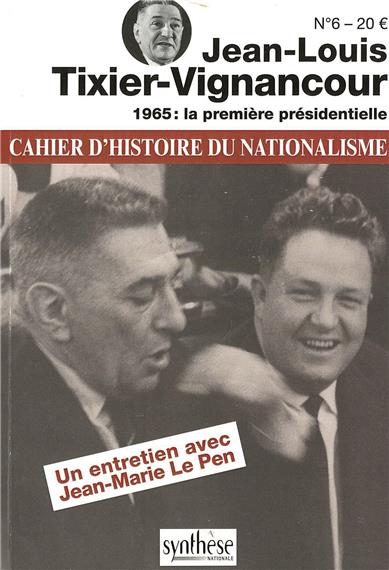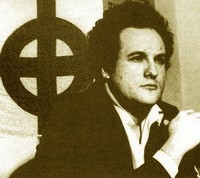Jean-Marie Le Pen, founder of the French National Front (Front National) who built his movement into the strongest nationalist party in postwar Europe, has died aged 96.
Soon after the Second World War, Jean-Marie Le Pen became active in anti-communist politics with the patriotic organisation Action Française and other groups. This involved many street battles with the left during his student years. After obtaining a law degree, Le Pen joined the Foreign Legion and served in what was then French Indochina (today’s Vietnam) and the Middle East, eventually rejoining the Legion to serve in Algeria even while a member of the French parliament (National Assembly)
He was first elected to the National Assembly (aged 27) as a member of the populist movement led by Pierre Poujade, but the complications of nationalist politics led him through a shifting landscape of parties and factions.
In 1965 Le Pen was campaign manager for the nationalist presidential candidate Jean-Louis Tixier-Vignancour, who polled 5.2% – which was then the highest postwar vote for a ‘far right’ candidate.

The Tixier-Vignancour campaign was part of Le Pen’s complicated relationship with French wartime history. Le Pen’s later party was to include many veterans and supporters of Philippe Pétain’s wartime Vichy government, but also some of those who had supported Pétain’s great rival Charles de Gaulle (against whom Tixier-Vigancour was standing in that 1965 election).
Le Pen founded his own party – the Front National – in 1972 and in his first run for the presidency in 1974 obtained just 0.74% of the vote. At that point he wasn’t even the main candidate of the ‘right’: a reactionary Catholic candidate, Jean Royer, polled 3.2%, and for at least the next decade there was some doubt as to whether Le Pen’s FN or a splinter party called PFN was going to be the main French nationalist party. In 1981 Le Pen failed even to obtain the necessary signatures to stand as a presidential candidate
Still, Le Pen battled on, despite violent ‘anti-fascist’ opposition that included the bombing of his home in 1976, and the assassination of his colleague and prominent FN official François Duprat in a car bomb in 1978.

The FN began to build support at local elections in 1983, but was even by that time still regarded as a smaller and more marginal party than its British namesake the National Front.
That was to change very rapidly during the mid-1980s, as Le Pen’s FN rapidly expanded while the NF in Britain entered a series of fatal splits.
At a historic by-election in the northern French town of Dreux in October 1983, FN candidates led by Jean-Pierre Stirbois polled 17% in the first round, then formed an unprecedented right-wing alliance with conservative parties that won the second round. For the first time the FN not only had councillors but were part of a coalition in charge of a town (though only a small town with just 35,000 inhabitants).
The boost to FN morale and publicity carried over to the European elections of 1984, where the FN polled 11% nationwide and won ten seats, the same number as the once-powerful but by this time declining French Communist Party.
In advance of the 1986 general election, President François Mitterrand sought to boost his Socialist Party and divide the forces of French conservatism by changing the electoral system from the traditional two-round system to a form of proportional representation. Mitterrand knew perfectly well that PR would lead to a dramatic increase in Le Pen’s support, but gambled (wrongly as it turned out) that this would be a short-term phenomenon.
In that 1986 election, the FN polled 9.8% and won 35 National Assembly seats.

From that point on, Le Pen was to remain a serious force in French politics, and was able to bequeath his daughter Marine a party that she then expanded (and renamed) into a serious contender for power.
The circumstances of that transformation, and the positive and negative lessons that can be drawn from Le Pen’s career, will be addressed in detail in a forthcoming H&D obituary. For now, we salute a titan of European nationalism, and send our condolences to Jean-Marie Le Pen’s family, especially his daughter Marine (who stands on the threshold of power) and his granddaughter Marion Maréchal, who might in due course become the third generation of the Le Pen family to lead French nationalism.

